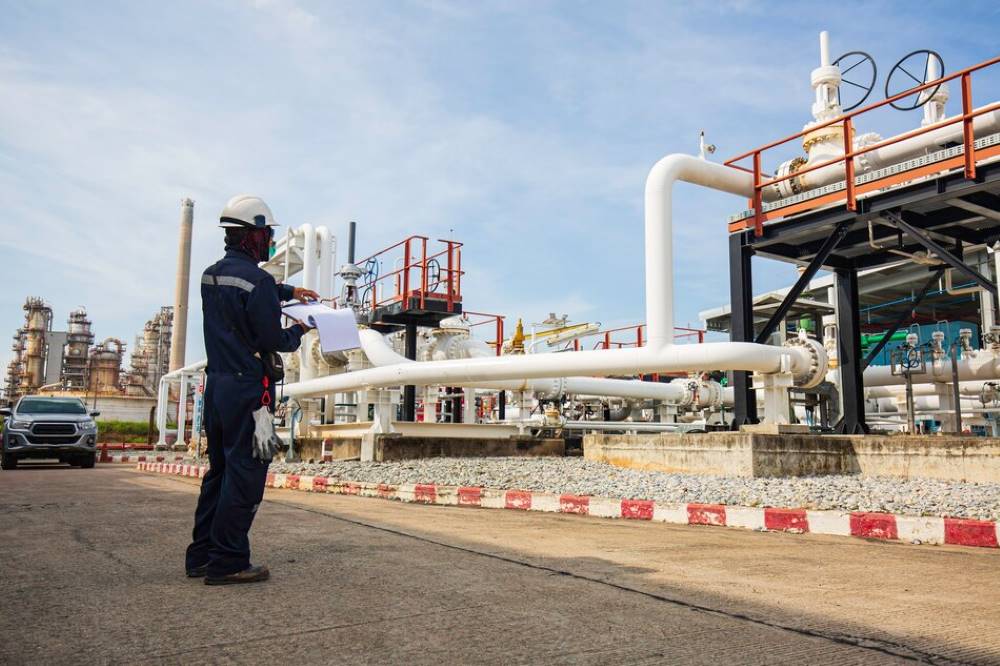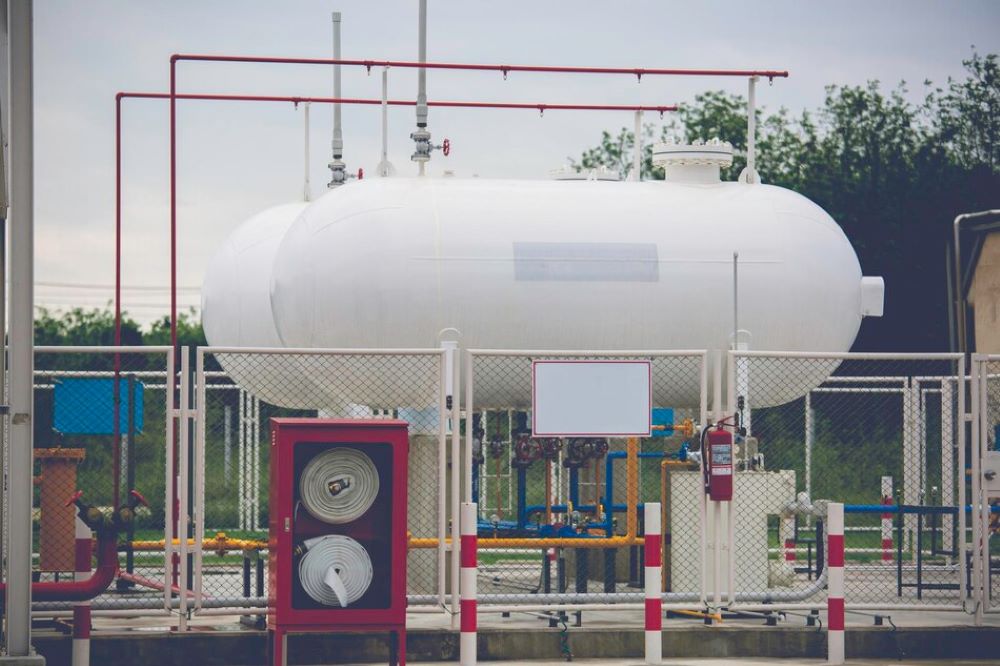As the backbone of gas distribution and transportation, gas facilitators are obligated to the energy sector. This essay will examine gas facilitators in detail, looking at their uses, advantages, drawbacks, and how technology is influencing the industry going forward.
Comprehending Gas Facilitators
Gas facilitators are crucial businesses in the energy industry that manage the effective distribution and transportation of natural gas. They serve as go-betweens, making sure that gas moves smoothly from production to final consumers. Gas facilitators come in several varieties, with each one focusing on a certain facet of the gas supply chain.
Vital Roles for Gas Facilitator

Gas facilitators oversee the complex process of gas supply in two ways. In addition to keeping an eye on the transportation infrastructure, they also make sure that safety regulations and standards are followed. Systems for supplying gas are made more dependable and safe by this dual purpose.
Gas Facilitators’ Advantages
Delivery of gas is more efficient when gas facilitators are involved. These facilitators streamline distribution networks, cut down on waste, and improve system efficiency. Gas is a greener energy alternative due to its major advantages and dedication to environmental sustainability.
Difficulties in Gas Facilitation
Gas facilitation has its own set of difficulties even though it is essential for the energy industry. Constant challenges come in the form of complicated regulations and technological barriers. All parties involved in the business, including governmental agencies, and gas facilitators, must work together to overcome these obstacles.
Gas Facilitator Businesses
Several businesses set the standard for gas facilitation, fostering efficiency and innovation within the sector. Businesses like XYZ Gas Tech and ABC Gas Solutions have significantly changed the way gas is supplied and transported.
Technology’s Contribution to Gas Facilitation
Gas facilitation is changing as a result of the incorporation of smart technology. The accuracy and dependability of gas management are being improved by technology, from sophisticated monitoring systems to real-time data analytics. Future developments like blockchain technology and artificial intelligence offer even more efficiency.
Ensuring Gas Facilitation Safety
Because natural gas is flammable, safety is of the utmost importance when it comes to gas facilitation. Reducing hazards is aided by strict safety procedures, frequent inspections, and the application of cutting-edge technologies. Case studies of effective safety implementations demonstrate the industry’s dedication to guaranteeing public and worker well-being.
The Effects of Gas Facilitation on the Environment
In the current energy landscape, sustainability is a major priority, and gas facilitators are actively helping to achieve this objective. The sector is attempting to lessen its carbon footprint and promote a cleaner future by putting eco-friendly policies into place and investing in renewable energy sources.
Prospects for a Career in Gas Facilitation

Career possibilities in gas facilitation are increasing in tandem with the growing need for greener energy sources. People with backgrounds in environmental science, engineering, and related disciplines are well-positioned to support the expansion of the sector. Project management, safety compliance, and technology innovation are among the career opportunities.
Case Studies
Analyzing actual instances of productive gas facilitation projects yields insightful information. These case studies illustrate best practices and lessons gained in everything from the installation of cutting-edge monitoring systems to the building of efficient pipelines.
New Developments in Gas Facilitation
Continuous advancements in the sector are redefining the way that gas is provided. The world is changing as a result of emerging technologies like sensor networks, drone monitoring, and predictive analytics. By consistently pushing the envelope of what is feasible, research and development programs make sure that gas facilitators remain at the forefront of technical innovations.
Gas Facilitation’s Future
Gas facilitation faces a future filled with changing problems and developments. It is anticipated that the sector will be vital to the shift to sustainable energy sources. To stay relevant in the ever-changing energy scene, gas facilitators will need to accept new technology, adjust to changing laws, and investigate alternate energy sources.
Unsung heroes in the energy industry, gas facilitators make sure that natural gas is delivered dependably and securely. The function of gas facilitators becomes increasingly more important as environmental concerns gain prominence and technology keeps developing. The secret to a prosperous future for gas facilitation is to embrace innovation, put safety first, and support sustainable practices.
Benefits of Gas Facilitation
Energy-efficient Transportation:
Gas facilitator are essential to the smooth flow of natural gas from producing locations to final consumers.
Benefits to the Environment:
When compared to other fossil fuels, natural gas burns cleaner and produces fewer greenhouse gas emissions.
Energy Effectiveness:
Gas facilitators maximize the efficiency of distribution networks by cutting down on waste and improving overall system performance, which raises energy efficiency.
Sustainability-Related Contribution:
By employing eco-friendly procedures and making investments in renewable energy sources, gas facilitators actively support environmental sustainability.
Career Opportunities:
Opportunities for employment in gas facilitation, which offers a variety of professions in project management, safety compliance, and technical innovation, are brought about by the rising desire for greener energy sources.
Technological Progress:
Gas management becomes more accurate and dependable when smart technologies like sensor networks and real-time data analytics are included.
Safety precautions:
Gas facilitators reduce dangers to the public and employees by using state-of-the-art technologies, strict standards, and frequent inspections.
Innovation within the Sector:
Gas facilitators are certain to remain at the forefront of technical improvements thanks to the industry’s continual innovations, which range from drone monitoring to predictive analytics.
Drawbacks of Gas Facilitation
Technological Obstacles:
Adopting and integrating new technology presents problems for gas facilitation, which might impede the growth of the sector.
Regulatory Difficulties:
Complying with the industry’s many rules is a difficult and resource-intensive part of gas facilitation.
Hazards to Safety:
Notwithstanding safety precautions, there are always hazards associated with natural gas’s flammable nature, and mishaps can have dire repercussions.
Effect on the Environment:
Even if natural gas is cleaner, habitat damage and possible water contamination are still effects of its extraction and delivery on the environment.
Abuse of Fossil Fuels:
Due to its reliance on fossil fuels, gas facilitation adds to the ongoing reliance on non-renewable resources.
Exorbitant starting costs
For gas facilitator firms, the initial expenditures of implementing safety measures and cutting-edge technologies might be significant.
Public View:
Gas facilitators may face difficulties due to the public’s impression of natural gas, which is shaped by worries about fracking and its effects on the environment.
Making the Switch to Sustainable Practices:
As the energy environment changes, gas facilitators must adapt and make investments to make the shift to more sustainable operations.
In conclusion, gas facilitation has a lot to offer in terms of environmental benefits and energy efficiency, but it also has drawbacks in terms of safety, legality, and technology. Gas facilitation’s future depends on finding a balance between implementing environmental measures and supplying energy demands.
Frequently Ask Questions About Gas Facilitator (FAQs)
Q1: What role do gas facilitators play in maintaining a sustainable environment?
By putting eco-friendly procedures into place, investing in renewable energy sources, and lowering the carbon footprint of gas distribution operations, gas facilitators support environmental sustainability.
Q2: What are the job options in gas facilitation?
Positions in project management, safety compliance, and technical innovation are among the career options in gas facilitation. Environmental scientists and engineers are excellent candidates for these positions.
Q3: What obstacles must gas facilitators overcome to guarantee security?
To ensure safety, gas facilitators must overcome obstacles like complicated regulations and technological limitations. Industry stakeholders must work together to overcome these obstacles.
Q4: How will technology affect gas facilitation in the future?
Future developments in gas facilitation are being shaped by technology, including the use of artificial intelligence, real-time data analytics, and intelligent monitoring systems. These developments improve gas management’s dependability and efficiency.
Q5: What are some instances of gas facilitation initiatives that have been successful?
Implementing cutting-edge monitoring systems, building effective pipelines, and utilizing predictive analytics are examples of successful gas facilitation projects. Case studies offer insightful information on best practices and lessons discovered.
Table of Contents
Add a header to begin generating the table of contents

